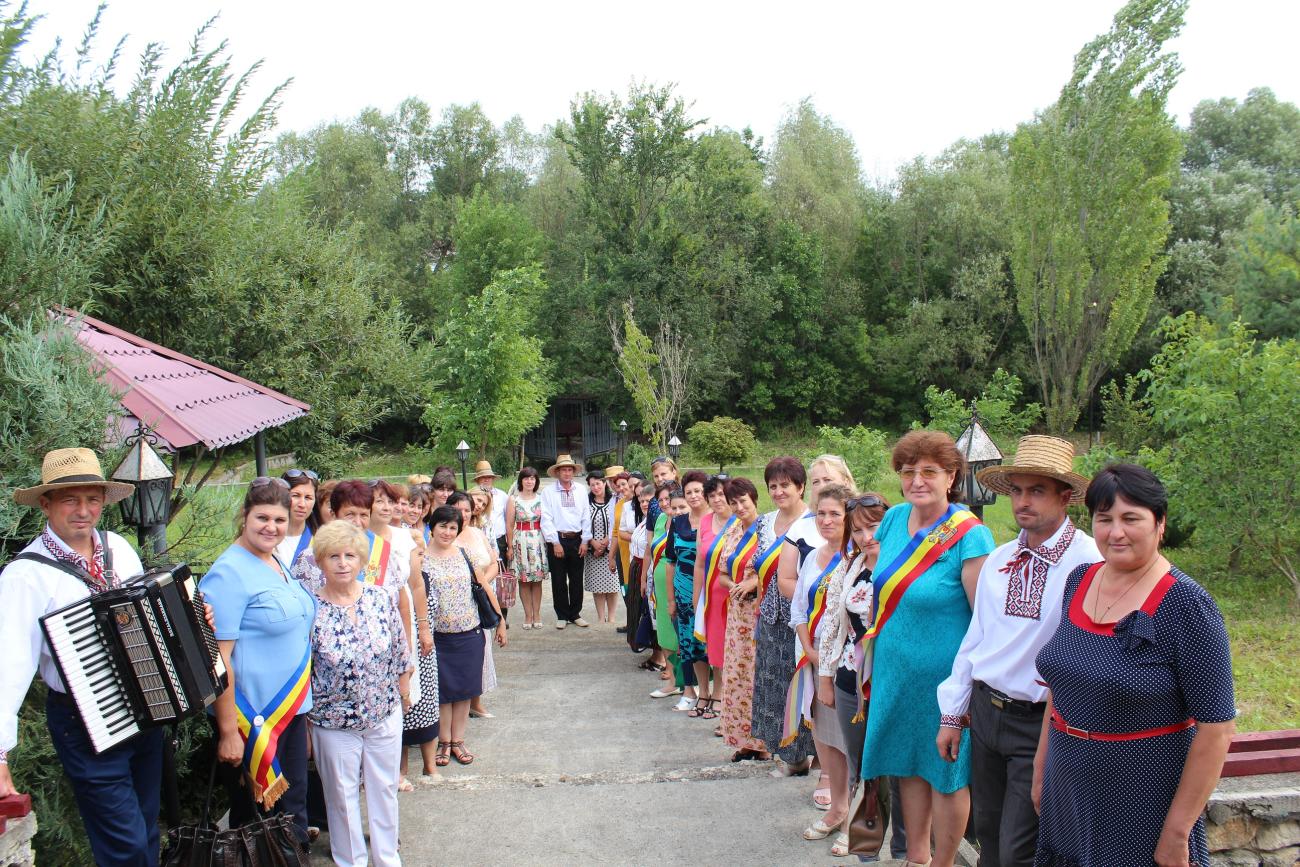Is there any rural community so popular with youth that it is swarming with playgrounds? It seems that there is at least one: its name is Sauca, in the Ocnita district, located 184 km north of Chisinau. In this village, 35 women mayors at their first or second mandate from the districts of Orhei, Floresti, Donduseni, Anenii Noi, Criuleni or Cimişlia came to visit and learn from a positive success story.
After a presentation of the Sauca village, the women mayors could visit a few locations renovated by recent projects: the House of Culture, the library transformed into a community center by the Novateca project, two museums, the kindergarten, and the local secondary school. Iraida Jitari, at her second mandate as mayor of Sauca, has "extensive experience in implementing projects and a leader in organizing cultural festivals," in the words of Nadejda Darie, coordinator of the Women Network of the Congress of Local Authorities from Moldova (CALM).
"I showed to my colleagues from other villages the way we tried to get things done with limited financial resources. Our secret is to work with economical agents and we, in turn, offer our help when it is needed. Most of our inhabitants are not going abroad - and this motivates us to have a nice relationship with everybody," explained Iraida Jitari.
This positive example of cooperation between local public administration and private sector impressed the mayor of Crişcăuţi, Alina Semeniuc. “The fruitful collaboration between local government and directors of institutions inspired me. I want to promote that in the Crişcăuţi village,” said Alina Semeniuc.
The mayor of Sauca is proud that her village is the one with most children in the entire district. "That is why the secondary school will not be closed as many others have been. On the contrary, it is renovated. We want to offer all the proper conditions for the people, so they can have a good life here", pointed out Iraida Jitari.
Ioana Stoica, mayor of Porumbrei, in the Cimislia district, was delighted that people not only do not leave Sauca, but are motivated to help their community to prosper. "In Porumbrei instead the problem of migration is serious, and people are in despair. But this exchange of experience gave me new ideas, for example finding external funds to further develop our locality”.
However, there is still much to do in Sauca as well. "If we could ensure water and sewage services for the people, I would be the happiest. I hope I will do that in my current mandate. You just have to trust that you can move things in place. My motto in my daily activities is this: if you believe in your idea, find solutions; if you knock the right doors, at least one will open," says Iraida Jitari, the mayor.
The exchange of best practices continued in the Unguri village, from the same district of Ocnita. Its mayor, Ivan Cuhari, is at his first mandate. When the mayor presented the story and old traditions of this picturesque village to the women mayors on visit, a discussion ensued about ecotourism, effective ways to promote local development, and the importance of cross-border projects such as one that is underway in collaboration with the Ukrainian local authorities from the other side of the border.
Women mayors learned about how to attract investment from abroad, preservation and promotion of historical and cultural assets, the organization of cultural festivals, and how to cultivate a collegial atmosphere between local public administration and subordinated institutions.
The study visit was organized by the Congress of Local Authorities in Moldova, with the support of UN Programme "Women in Politics", which is implemented by the United Nations Entity for Gender Equality and the Empowerment of Women (UN Women) and the United Nations Development Programme (UNDP), in partnership with East-Europe Foundation and Center "Partnership for Development", financially supported by the government of Sweden.


